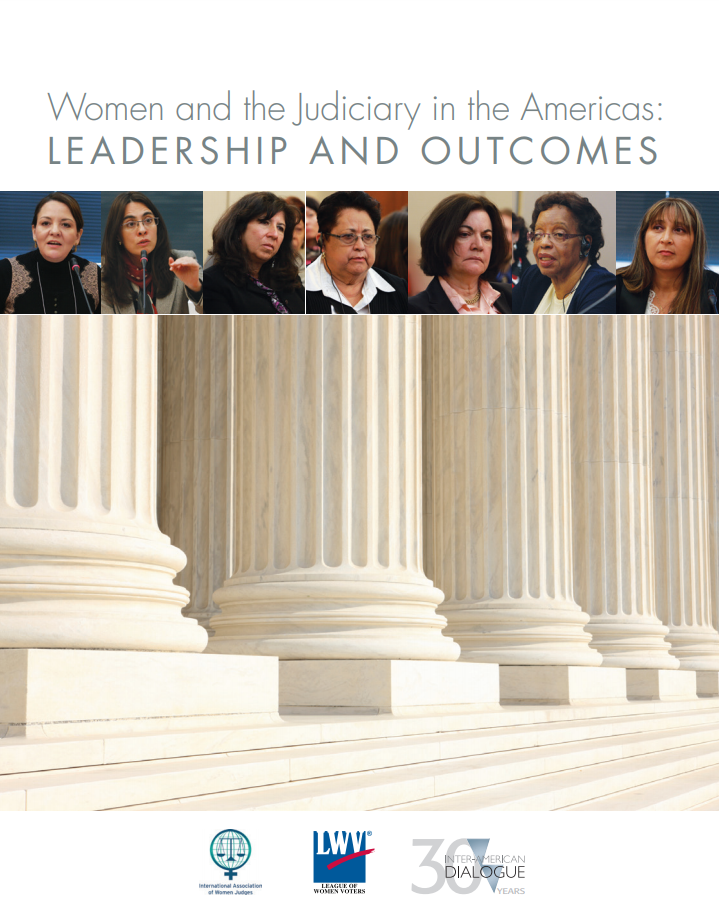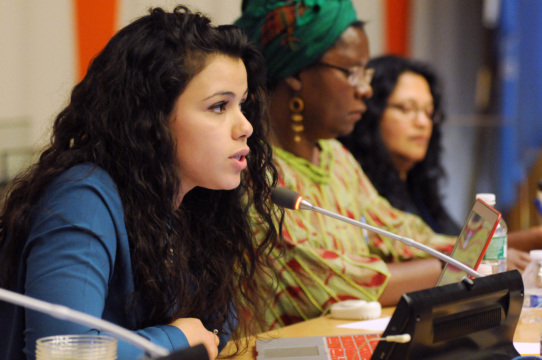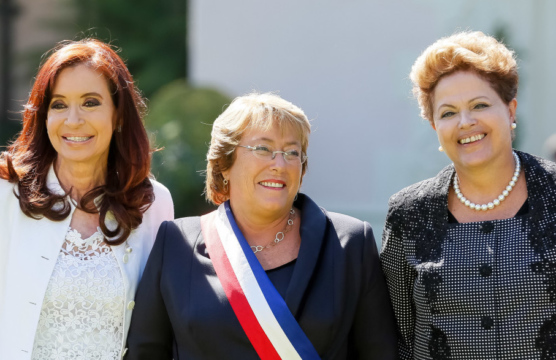What Roles are Women Playing in Mexico’s Drug War?
What roles are women playing in Mexico’s brutal drug trafficking war?
This post is also available in: Español
We are pleased to present this report on women in judicial leadership in the Americas. In recent decades, women in Latin America and the Caribbean have made tremendous strides towards achieving leadership in every sphere and at the highest levels.
Today, Michelle Bachelet is in a strong position to be reelected as president of Chile, while Cristina Fernández and Portia Simpson Miller are serving their second terms as heads of state of Argentina and Jamaica, respectively. Dilma Rousseff of Brazil and Laura Chinchilla of Costa Rica now also serve as their countries’ first elected female presidents. Across the hemisphere, the number of women legislators in the region has jumped 50 percent, from 16 to 24 percent, between 2000 and 2013.
In light of these achievements in the realm of elected politics, the Dialogue and the League of Women Voters wanted to build on the partnership they began in 2007 with the conference of women political leaders, and now take a look at how women are faring in the judicial branch. We turned to the International Association of Women Judges for their expertise in this arena and were delighted they agreed to join in cosponsoring the initiative that led to this publication.
A central purpose of this conference was to draw on the collective experience of a group of accomplished women judges from across the Americas to develop recommendations on how to enhance the positive role of women in the judiciary.
The percentage of women in Latin America’s high courts has risen dramatically over the past decade, increasing from zero positions in some countries in the year 2000 to a third of appointments in 2010. Latin America and the Caribbean ranks second in terms of women’s representation in the judicial sector, topping the world average by 10 percent.
As judicial corruption threatens to undermine democratic institutions in many countries of our hemisphere, women leaders have played a critical role in reversing this trend, often spearheading transparency initiatives, bringing human rights abusers to justice, and devising new laws and special tribunals to address endemic patterns of violence against women.
Despite these advances, however, as in elected politics and the private sector, in no country of the Western Hemisphere does the number of women judges reach the proportion of women in the population at large, nor are women represented in equal numbers in the highest courts.
With impressive gains and outstanding challenges in mind, we organized this conference to showcase the progress that women have made in gaining access to judicial leadership positions across the Americas. Discussions focused on women’s rights and strengthening judicial institutions and the rule of law; promoting diversity in the judicial system; and the use of international law to promote women’s rights and compel national governments to comply with their international obligations.
We provide the following analysis and recommendations for government officials, international institutions, and civil society activists. We stress that a strong and representative judicial sector requires that women judges be present in all courts at all levels and that there must be merit-based institutionalized processes in place that allow those women judges to rise through the ranks. We urge public and private leaders to increase judicial training to break down gender stereotypes and enhance sensitivity to women’s rights. We urge government officials to implement international norms and decisions on women’s rights issues, and non-governmental groups to continue holding those officials’ feet to the fire.
This initiative would not have been possible without the financial support of the League of Women Voters’ Global Democracy Fund. We are also grateful to the Organization of American States’ Office of the Special Rapporteur for Freedom of Expression for providing simultaneous interpretation for the conference. And we owe a huge debt to the Dialogue’s Rachel Schwartz for her intellectual contributions as author of a superb background paper and rapporteur’s report.
Zaida Arguedas
Deputy Executive Director
League of Women Voters
Joan Caivano
Deputy to the President & Director of Special Projects
Inter-American Dialogue
Joan D. Winship
Executive Director
International Association of Women Judges
|
|
What roles are women playing in Mexico’s brutal drug trafficking war?
How are women faring in Latin America? Where has progress been made and how has that been achieved?
Would this be a more compassionate, more peaceful planet if more of it were ruled by women?


